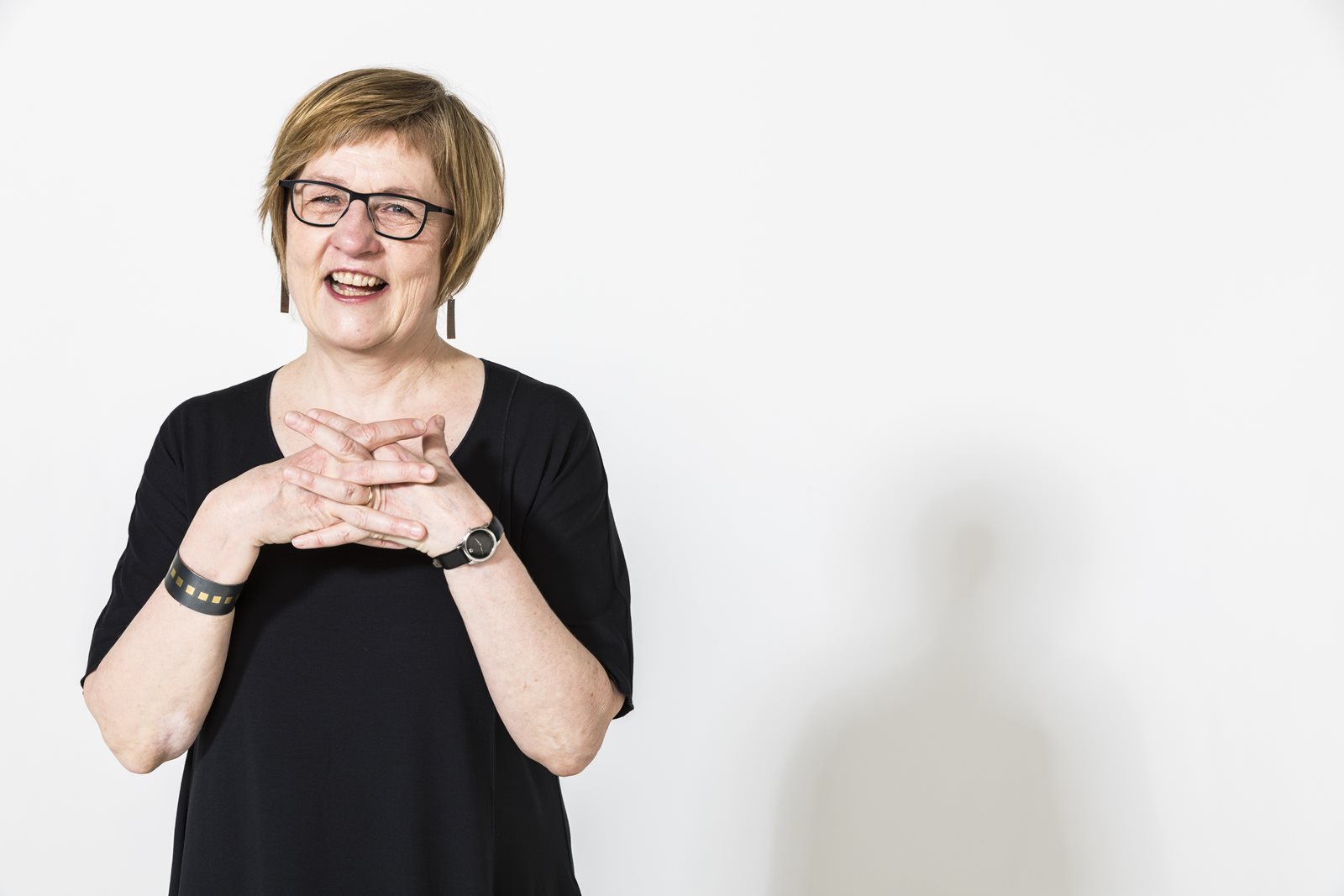By Douglas Esser
Here are three ways to question whether a photo has been altered: Look for a ragged edge from a cut-and-paste. Watch for shadows that show differing light sources. Check the weather report for the day of an outdoor shot and see if it matches.

University of Washington Bothell Professor Jane Van Galen asked students to discern the truth in a series of such photos. They show a person standing next to celebrities. Some are real. Some are doctored.
After the exercise in the School of Educational Studies, one student used Photoshop to create a picture of his dog in front of the Eiffel Tower and put it on his Instagram account. He thought followers would raise questions about his dog in Paris. Nobody did.
“That raised questions for him,” Van Galen said. “Do people trust him? Does he have more power to deceive versus a stranger?”
That’s just one example of her approach to critically consuming and creating digital media, for which Van Galen received the 2018 University of Washington Distinguished Teaching Award for Innovation with Technology. This is the second straight year the award has gone to UW Bothell faculty, following the 2017 award to Jody Early in the School of Nursing & Health Studies. The award was created in 2013 to recognize a faculty member from the Seattle, Tacoma or Bothell campuses who improves student learning by leveraging technology.
“For me, the work is finding strategies that teach them to be critical and creative people in that world,” Van Galen said. “Technology is also helping people be seen and heard and known — to tell their own stories — that’s a pretty gratifying part of this work. I’m glad to see it recognized.”
Many of Van Galen’s students are teachers earning their master’s degree. Part of her work is thinking about how to teach her students’ students in elementary school and high school to be critical consumers of information.
“That is essentially the challenge we face — whether people are deliberately lying to us or whether it’s hard to get complete information when we’re getting information from so many sources,” she said.
It’s a challenge that Van Galen, the founding director of the UW Bothell’s education program, has been dealing with for a decade or more. But now, students are immersed in digital media. Better writers find ways to draw an audience by including multimedia. “The public square has often moved to digital spaces now,” Van Galen said.
In education, the field has grown from a few pieces of classroom software to the whole culture becoming digitized. Van Galen has taught digital storytelling and helped students create multimedia projects “in which they can advocate for themselves and be more visible in the world.” She has specifically supported first-generation college students through her First in Our Families project. She started UW Bothell’s graduate certificate program in digital teaching and learning. She conducts workshops around the country, hauling a case of iPads through airports.
Van Galen works with a variety of hardware and different formats for video, audio and images. For the most part, she looks for low-cost products students can use on phones or Chromebooks, which many schools use. But, a summer storytelling course for teachers, uses high-end video software.
What you do with technology, not technology itself, is the learning goal.
“It’s about the creativity and the connections and the collaborations and the critical consumption of information,” Van Galen said. “Those are the things that tech supports.”




